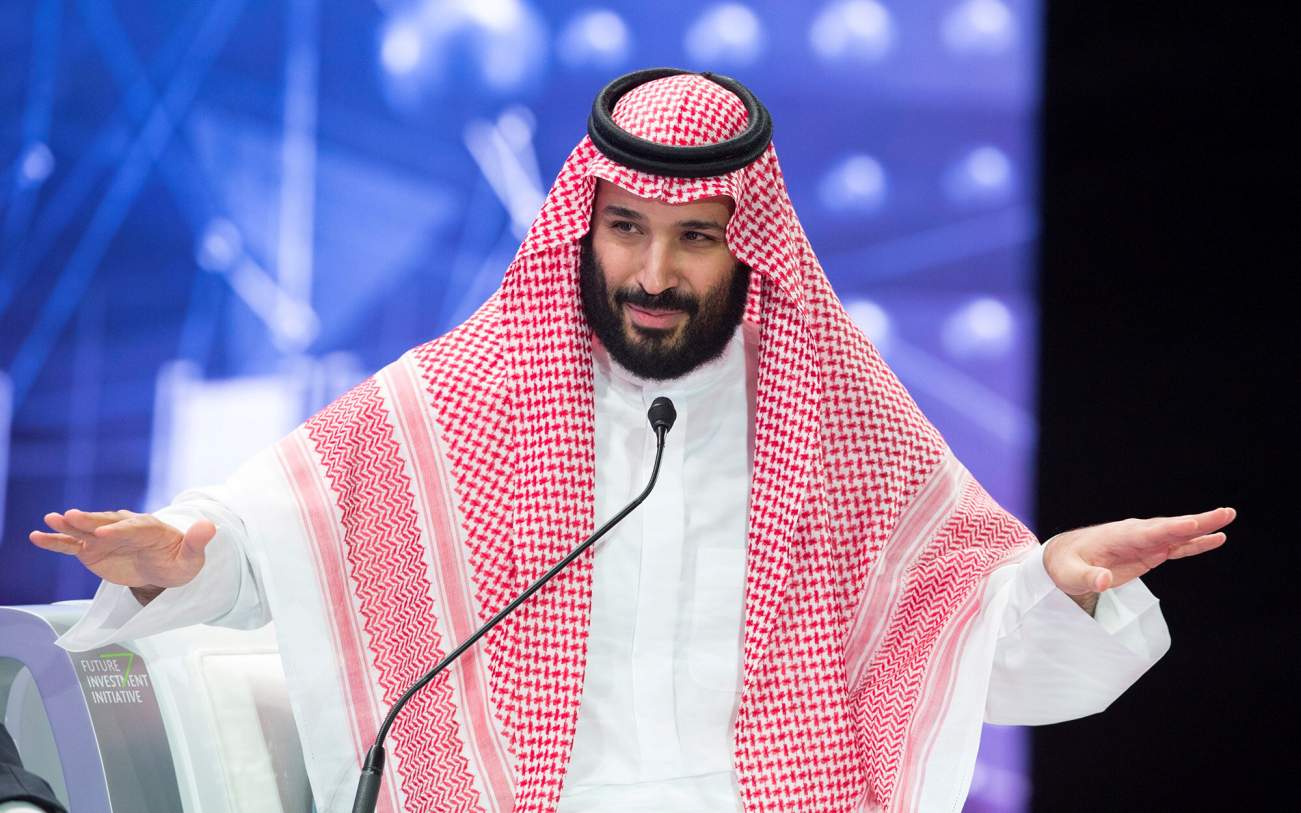by Doug Bandow
 American values and interests are under threat in the Middle East. A murderous dictatorship has underwritten terrorism and continues to promote Islamic radicalism around the globe. The regime suppresses political dissent, persecutes non-Muslim faiths at home, and is pursuing military hegemony abroad. Despite a long and sometimes checkered relationship with the United States, this government threatens to undermine long-term Washington objectives.
American values and interests are under threat in the Middle East. A murderous dictatorship has underwritten terrorism and continues to promote Islamic radicalism around the globe. The regime suppresses political dissent, persecutes non-Muslim faiths at home, and is pursuing military hegemony abroad. Despite a long and sometimes checkered relationship with the United States, this government threatens to undermine long-term Washington objectives.
No, it’s not Iran. The offending regime is the Kingdom of Saudi Arabia.
The kingdom’s American supporters laud the absolute monarchy as a long and valued ally. Former Secretary of State James Baker recently wrote: “Saudi Arabia has been an important strategic partner of the United States since President Franklin Roosevelt met with King Ibn Saud, the founder of the Saudi state, at the close of World War II.” However, from the very beginning the Saudi royals have been a profound embarrassment to the United States.
A violent clan that gained power with the help of the allied powers after World War I, the “House of Saud” cut a deal with fundamentalist Islamic clerics to enforce their dictates in return for theological endorsement. Even more than the Soviet Union, Saudi Arabia created a totalitarian state, enforcing strict religious, social and political codes.
The kingdom once mattered geopolitically, but no longer. It has lost its energy dominance. Its financial dependence makes use of its “oil weapon” impractical, even suicidal. No outside power threatens to take control of the region. As a natural rival of Iran, Riyadh doesn’t need Washington’s encouragement to balance Tehran.
In short, Saudi Arabia doesn’t much matter to America today.
But the Trump administration remains locked in the 1970s and 1980s. Which left officials adrift when confronted with the royal regime’s murder of journalist Jamal Khashoggi. A despotic Middle Eastern government organized a hit on a regime critic, who also was an American resident. The killing was carried out a consulate located in a U.S. treaty ally. The murder was well-organized; a diverse fifteen-man hit squad was dispatched; the body was disposed of using diplomatic cover, perhaps after being dismembered; a cover-up was organized, including the country’s de facto ruler.
The administration should respond vigorously. Had Iran, Syria, Russia, or another American adversary committed the crime, administration officials would be expressing outrage over the latest human-rights violation and demanding firm punishment. Ambassador Nikki Haley would be using her United Nations perch to denounce the atrocity. Washington would be threatening retaliation and organizing a multilateral response.
However, the fact that the criminals were America’s friends running the most repressive nation in the Middle East exposed U.S. policymakers as shameless hypocrites and frauds. Some who claimed to defend democracy instead acted as public relations agents for an antediluvian authoritarian monarchy. Far from inaugurating a new “American First” policy, President Donald Trump was acting as a front man for Washington’s foreign-policy establishment.
Indeed, the White House spent weeks attempting to minimize and even whitewash the Saudi role. The essential argument for sacrificing supposedly sacred U.S. principles to protect an obviously guilty regime—the essential truth was that Khashoggi entered the consulate but never emerged alive—was that the alliance was simply too important to risk. That view reflects a world which disappeared years, even decades ago.
The president appears fixated on “deals”—for oil, weapons, and other goods. “I don’t want to lose all of that investment that’s being made in our country,” he said. However, threats of retaliation are not serious. Ironically, though he touts his negotiating prowess, he has amateurishly handed the advantage to the beleaguered Saudi royals by suggesting that Riyadh holds all the economic cards.
Despite whispered threats of an oil boycott, which would have little impact in an international market, the royals will continue selling black gold: how would the crown prince afford his next yacht without the cash? Indeed, the royal family could not survive without the revenue. Moreover, the market is far more diverse today, including the United States as an increasing supplier. Other dangers have dissipated: The Soviet Union no longer exists, let alone threatens to invade the Mideast and cut off the West’s energy supplies.
As for Saudi purchases, the numbers used by the president are inflated. Moreover, the royals want military hardware and civilian goods for their own benefit; having filled their arsenal with U.S. weapons, diversification would come at a cost. America remains a destination and customer of choice. Even if the royals shifted their orders for more conventional goods to other suppliers and invested their cash in other, less desirable venues, the impact on America’s $20 trillion economy would be modest.
For many MbS fans, the issue is more about Iran than Saudi Arabia. The kingdom, it is routinely and relentlessly intoned, is a partner in containing Tehran. For some policymakers, nothing else matters. For instance, Daniel B. Shapiro, a former U.S. ambassador to Israel, once declared: “You need Saudi Arabia to be at the center of this coalition.”
No comments:
Post a Comment